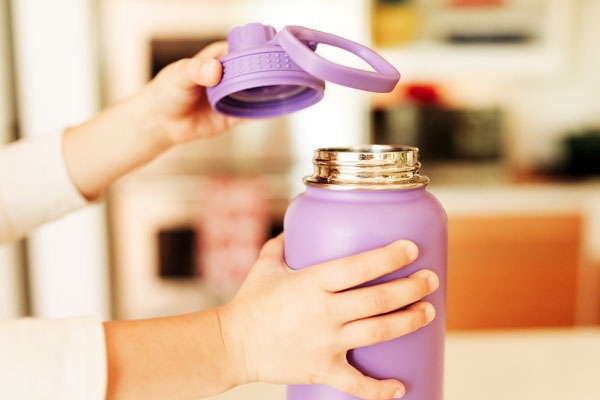
(Image source from: Canva.com)
Maintaining adequate hydration is one of the easiest methods to promote overall wellness. However, have you thought about how the type of vessel you use to drink water could impact your health? Whether at the gym or on your nightstand, water bottles have become a crucial everyday item, yet not all options are made the same. Recently, Dr. Manan Vora, a prominent orthopaedic surgeon and advocate for health, shared an Instagram post that ranked common types of water bottles found in homes. This ranking gained popularity for valid reasons; it is both practical and enlightening. Let's delve into the various water bottle options many of us utilize, arranged from the top choice to the least favorable.
Optimal Daily Water Bottle Options:
Stainless Steel Bottle:
The Top Pick: Durable and resistant to chemical reactions, stainless steel bottles do not contain harmful substances like BPA or phthalates. They effectively retain the temperature of both cold and hot beverages and are safe from leaching toxins. According to the doctor, this is the finest selection available.
Advantages: Highly durable, devoid of toxins or odors, insulated versions can maintain temperatures for extended periods.
Disadvantages: A bit heavier than plastic alternatives, may have a higher initial cost.
Conclusion: If you're prioritizing your health and environmental sustainability, investing in a premium stainless steel bottle is an excellent choice.
Glass Bottle:
A Solid Option: Glass bottles provide a pure taste of water with no risk of chemicals leaching into it. They boast a stylish, reusable design and are fully recyclable. So, what's the catch? Their delicate nature, for starters. If you happen to drop a glass bottle on a hard surface, you'll end up with fragments and spilled water.
Advantages: No chemical leaching, no aftertaste, completely recyclable.
Disadvantages: Breakable, potentially heavier than other materials.
Conclusion: Perfect for use at home or on your desk. Just be cautious around children or areas where it could slip.
Copper Bottle:
A Traditional Option, Not for Regular Use: Advocates of Ayurveda praise copper bottles for their potential to enhance immunity and reduce inflammation. It's thought that storing water in copper vessels overnight allows for the infusion of beneficial ions. Nonetheless, copper bottles are not suitable for frequent sipping or acidic liquids, as they can react adversely.
Advantages: Believed to boost immunity, carries aesthetic and cultural significance.
Disadvantages: Not suitable for all-day hydration, needs careful washing to prevent oxidation. Cleaning tips for copper bottles can be found here.
Conclusion: Use sparingly and appropriately. Great for morning routines, but not ideal for sustained hydration throughout the day.
Sipper Bottle:
Handy Yet Concerning: Those convenient bottles with pop-up spouts are excellent for workouts, but they can easily become a hotbed for bacteria if not cleaned regularly. That convenient nozzle can act as a hidden gathering spot for germs.
Advantages: Simple to drink from while active, lightweight.
Disadvantages: Hard to clean thoroughly, risk of bacteria growth.
Conclusion: Best for gym sessions, but make sure to clean it often and replace it if it develops an unpleasant odor.
Recycled Plastic Bottles -
A Cautionary Choice: While it may appear economical to reuse old Bisleri or mineral water bottles for hydration, these containers deteriorate over time, leading to the leaching of microplastics and potentially harmful substances into your drinking water. These plastics were initially manufactured for single use, not for repeated refills.
Advantages: Easily accessible
Disadvantages: Leaches microplastics as it ages, not intended for multiple uses, poses environmental risks
Conclusion: It's best to avoid them. Opt for a more secure and durable option instead.
Although your choice of water bottle may seem insignificant, the material it consists of is crucial for both your health and environmental impact. Looking for an easy change that offers significant advantages? Consider switching to steel or glass.







